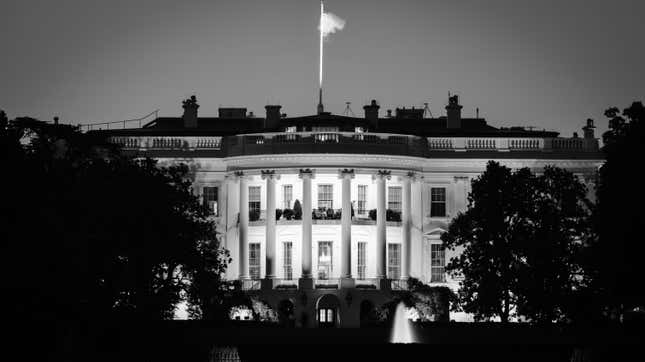Reading Pema Chodron's 'Comfortable with Uncertainty' on This Very Normal and Fine Post-Election Day
NewsPolitics

Late Tuesday night, MSNBC co-hosts began discussing box breathing techniques at length. That is when I thought about the stack of books by American Buddhist nun Pema Chodron sitting on my bookshelf—barely cracked, half-read. Those books, and spiritual enlightenment more generally, sit in my literal and figurative pile of: I Should Really Get to That One Day. Well, it seems if today is not that day, there might not be any such day. That is especially true of Chodron’s 2002 book Comfortable with Uncertainty, the spine of which felt like an extremely well-targeted SEO headline assaulting me when I walked past my bookshelf on this day of interminable ballot-counting limbo.
So, I decided to speed read the book, an approach that absolutely no person with any sense would ever advocate. Chodron herself writes against taking a “goal-oriented, we’re-going-to-do-it-or-else attitude” to spiritual practice, but she also instructs readers to “start where you are.” Where I am is chaos and free fall, and this book is a cliffside outcropping of brush that I’ve grabbed onto for dear life. One day, I hope to return to contemplate that brush, figure out its genus and species and water needs and light preferences, but right now I’m just trying to scramble the fuck up it. Let us scramble together with a few decontextualized and hastily slapped together bits of wisdom.
-

-

-

-

-

-

-

-

-

-

-

-

-

-

-

-

-

-

-

-

-

-

-

-

-

-

-

-

-

-

-

-

-

-

-

-

-

-

-

-








































